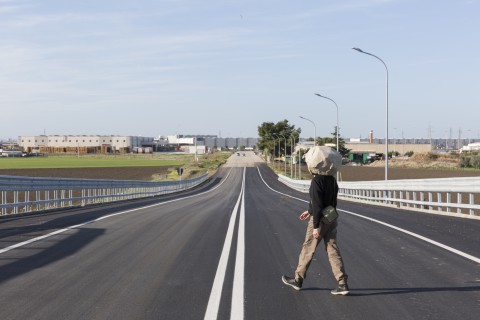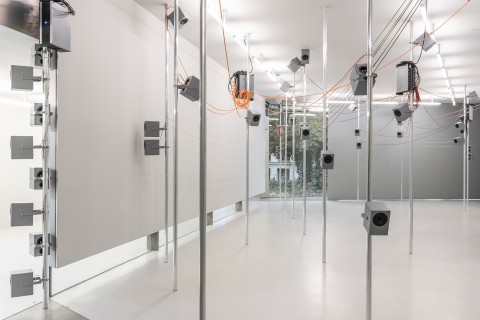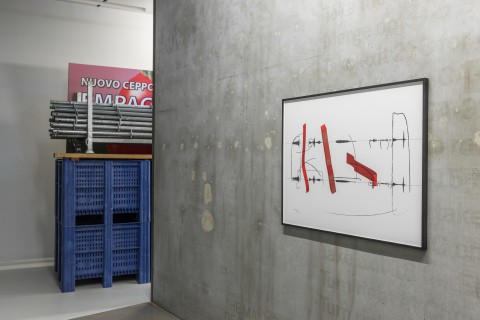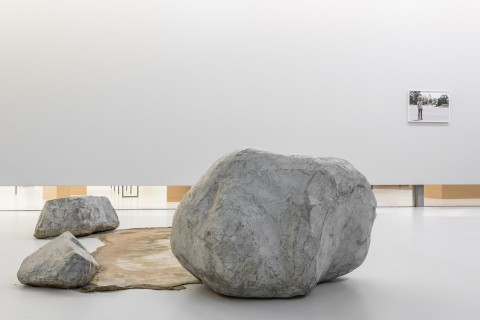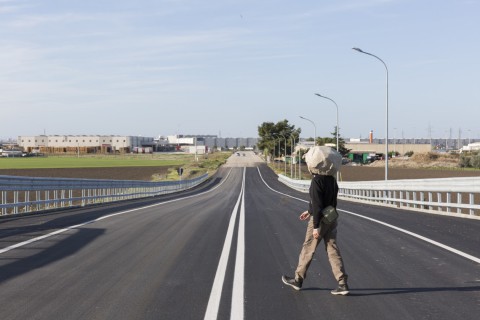Forms of resistance and solidarity are at the centre of the multimedia exhibition Im Rücken die alte Ordnung (he she they walked), which takes the stage at the GfZK with photographs, drawings, sculptures, videos and a multi-channel sound installation. Parts of the artistic project Ankersentrum (surviving in the ruinous ruin), created for the German Pavilion at the 58th Biennale Arte di Venezia, are on display, including works that have not yet been shown in exhibition format.
After four decades of ruinous neo-liberal politics, there is a wish for an unspoiled world. But is that which lies shattered before us now reversible, reparable? Looking back– also at the ruins – in a romanticised way would, in the best case, cause only new fractures. At the same time, the resonances generated by flight and resistance cause the ruinous structures to vibrate, setting diverse aesthetic and social processes in motion. Departing from the awareness of irreparability, the call for solidarity becomes louder. The exhibition listens to this call, developing “artistic protocols” of testimony and synchronisation with one another.
